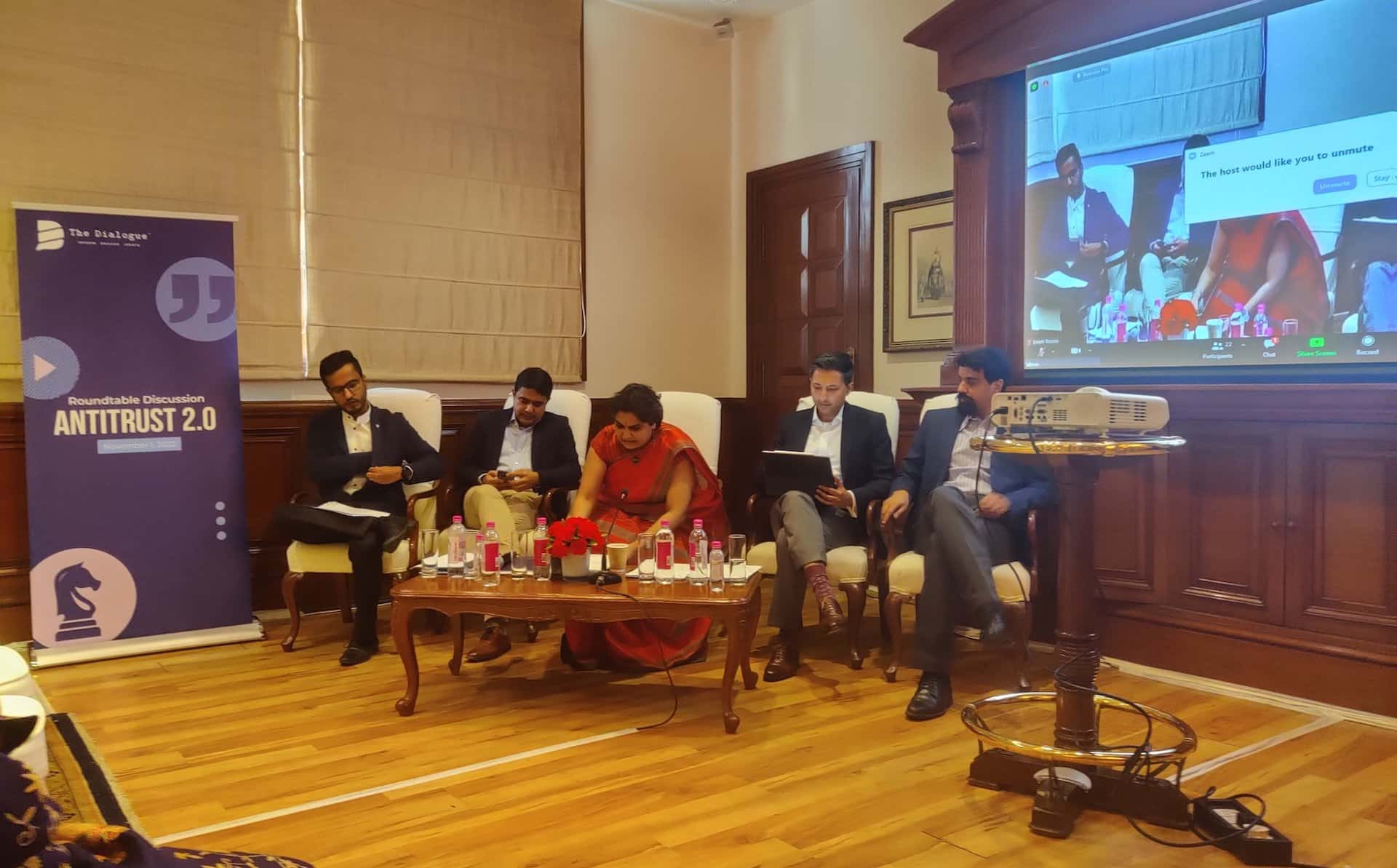Policy and Regulations
Don’t impose interventionist rules in Indian market: Experts at Dialogue Roundtable
India should avoid introducing interventionist rules, said the panel during a Roundtable Discussion on Antitrust 2.0 and the Competition (Amendment) Bill 2022 at the Imperial in New Delhi on Tuesday. The discussion was organized by The Dialogue, a delhi based research and public-policy think tank. The speakers in the conference were Ms. Nirupama Soundararajan, CEO at Pahle India Foundation, Mr. Samir R. Gandhi, Partner at Axiom5 Law Chambers and Senior Advisor at AZB & Partners, Mr. Rahul Rai, Partner at Axiom5 Law Chambers and Mr. Assimakis Komninos, Competition Law Partner, White & Case LLP. Kazim Rizvi, Founder of Dialogue India, and Saksham Malik from the Dialogue team moderated the session.
Asssimakis Kimonos was of the view that India need not follow the European examples of setting tough competition laws. “We are entering a new era of competition enforcement. This is an era of big tech which we need to understand. To me, it would be unfortunate if India were to impose interventionist rules on companies. You might end up with chaos,” he said.
Kimonos also expressed reservations about Europe’s Digital Marketing Act (DMA), which provides a set of carefully defined objective criteria for classifying large internet platforms as gatekeepers.“In July, the EU will be flooded by company notifications. Once you have a designation decision, you are bound by these rules. In DMA, we have a specific list of do’s and don’ts that’s very detailed. It’s different from competition law, which has general clauses,” he said.
Ms. Nirupama Soundararajan, CEO at Pahle India Foundation, was of the view that India was on a different stage of development than its western counterparts, something that should be taken into consideration. “India’s Competition Amendment Act is silent on settlement issues. SEBI already has that mechanism. It works better for regulation. Markets are constantly evolving. We need to keep in mind how they are evolving before we set everything in stone,” she said.
On the antitrust acts, she was of the view it’s not healthy to assume that big companies necessarily hinder an equitable market. “If a company makes a mistake, there should be some sort of scope for dialogue. A lot of times companies don’t intend wrongdoing. In fact, let’s allow something to happen first before assuming guilt, instead of just blindly copy-pasting regulations.”
Samir R Gandhi, Partner at Axiom5 Law Chambers and Senior Advisor at AZB & Partners, was insistent that government setting value thresholds might set bad precedent. “I don’t agree with the government setting value thresholds, as there is a risk of overdoing it. In the competition amendment act, when you set a new set of threshold, it automatically creates uncertainty in things,” he said.
He advised that the Competition Commission of India (CCI) shouldn’t overstep its jurisdiction that might create confusion in a growing market like India. “CCI is not a price regulator. If they are regulating prices, it goes against fairness and ensures competition in the market. If manufacturers of widgets are imposing their will on distributors, then CCI already has jurisdiction over it”. Ms. Nirupama Soundararajan agreed with him. “What constitutes predatory pricing depends upon a number of factors. Let the market determine the price and not CCI. How many deals do you want to scrutinize every single day?” she added.
Asssimakis Kimonos said there is no set way for a country to develop and all should devise their own paths. “There is no golden bullet here. India could either say we are copy-pasting these laws or they can find their own way. DMA doesn’t presuppose market effects. Its ramifications are extremely narrow. It doesn’t look at efficiency,” he added.
Rahul Rai said that it’s mostly profitable companies in pharma and tech whose deals generally go under scrutiny, which is like penalizing somebody for doing good. “In the Indian context, if we look at deals in the tech space, most exits happen through going public through IPOs. Do we create more roadblocks in that? What’s the benefit of that,” he said. Gandhi added that it’s not the best practice to go after a sector that is doing well. “There is an enforcement gap in most of these settlements. If you go after the pharma and IT deals, it’s sledgehammering a particular sector”, he said.
Ms. Nirupama Soundararajan added that it’s better to adopt a wait-and-watch policy. “There is nothing called an efficient cartel or a good cartel. Let’s examine them in detail first before legislating and see what kind of companies have come under scrutiny from CCI”.
The roundtable ended with most experts in consensus that India is far away from an economic position where it should start putting interventionist rules that might hinder the growth of the country. Most experts agreed that the Indian government should let the free market dictate the competition, instead of introducing competition laws it doesn’t need yet. In the past too, market experts and industry leaders have warned that India still doesn’t need laws like DMA and regulations that might harm the big players in the market, especially when e-commerce and tech are still in the initial phases of growth.










































